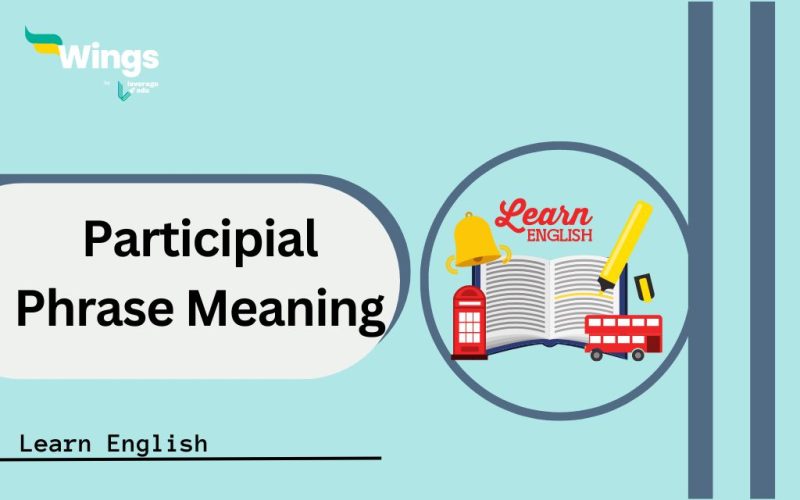Participial phrase meaning: When you learned about tenses in English grammar, you should have come across various verb forms and discovered the term ‘participle’ to be one among them. Participial phrases have a verb form inside acting like an adjective or adverb and can add additional details about people or things (nouns), and actions (verbs). Read this blog post to find out the participle phrase meaning with its definition, how it is formed, and the Difference Between a Participial Phrase and a Verb Phrase with examples.
This Blog Includes:
Also Read: 15 Best Phrases Examples (with Usage)
Participle Phrase Meaning and Definition with Examples
Participle phrase meaning denotes sets of words that contain a participle (a verb form ending in “-ing” or “-ed”) alongside any complements, modifiers, or objects. Whereas, they function as adjectives in a sentence, modifying nouns or pronouns. It adds additional information about the noun or verb it describes. Here are some examples you should go through to understand it better:
- Yawning loudly, the child rubbed his eyes.
- Feeling worried about the meeting, she took a deep breath.
- The sun shining brightly, so they decided to go for a walk.
- The cake, frosted with vanilla icing, looked delicious.
- The broken vase, lying on the table, was a family heirloom.
Also read: 55+ Phrases with Meaning
Types of Participle Phrase – Meaning and Examples
There are three types of participles in the English language: present, past, and perfect. Each type plays a different role in sentence construction.
Present Participle Meaning
As per the standard present participle meaning, they are made by adding –ing to the base form of a verb. They are used to denote ongoing actions, such as those taking place in the present continuous tense. Also, they can be used as adjectives to describe a noun.
Example
- He is dancing gracefully.
- The shouting crowd grew louder.
Past Participles Meaning
Past participles are created by adding -ed to the base form of common verbs. For irregular verbs, past participles can take a combination of forms, which need to be learned. Moreover, it is used in perfect tenses to indicate completed actions and as adjectives to define a noun.
Example
- The pastries have been baked to perfection.
- She was surprised by the sudden noise.
Perfect Participles
Perfect participles are created by combining having with the past participle of a verb. Other than this they are used to describe actions that have been completed before another action, typically in a participial phrase.
Example
- Having completed his work, he took a break.
- Having studied her lesson, she never repeated the mistake.
What is the Difference Between a Participial Phrase and a Verb Phrase?
The key difference between a participial phrase and a verb phrase is their function in a sentence depicted via the infographic below:
Related reads
Practise Exercise for Participial Phrase
Instruction: Find the participial phrase
- Exhausted from the hike, they collapsed onto the door. (Adjective)
- He danced passionately his dress gracefully. (Adverb)
- The carefully wrapped gift sat on the table. (Adjective)
- Struggling to open the bottle, he called for help. (Adverb)
- Confused by the teachings, they reread them carefully. (Adjective)
Answers
- Exhausted from the hike
- Passionately his dress gracefully
- Carefully wrapped
- Struggling to open the bottle
- Confused by the teachings
FAQs
As explained above, the participle is a form of a verb used as either an adjective or a part of certain tenses.
There are only four participles: the present active, future active, perfect passive and future passive.
Perfect participles can be structured to create an active or passive purpose. Having got dressed, she gradually went downstairs. Having completed their training, they will be a completely qualified nurse.
This was all about the participial phrase meaning, types and examples in English grammar. Hope you understand the concept and know how to proceed. You can also follow the page of Leverage Edu for more exciting and informative blogs.


 One app for all your study abroad needs
One app for all your study abroad needs












 60,000+ students trusted us with their dreams. Take the first step today!
60,000+ students trusted us with their dreams. Take the first step today!